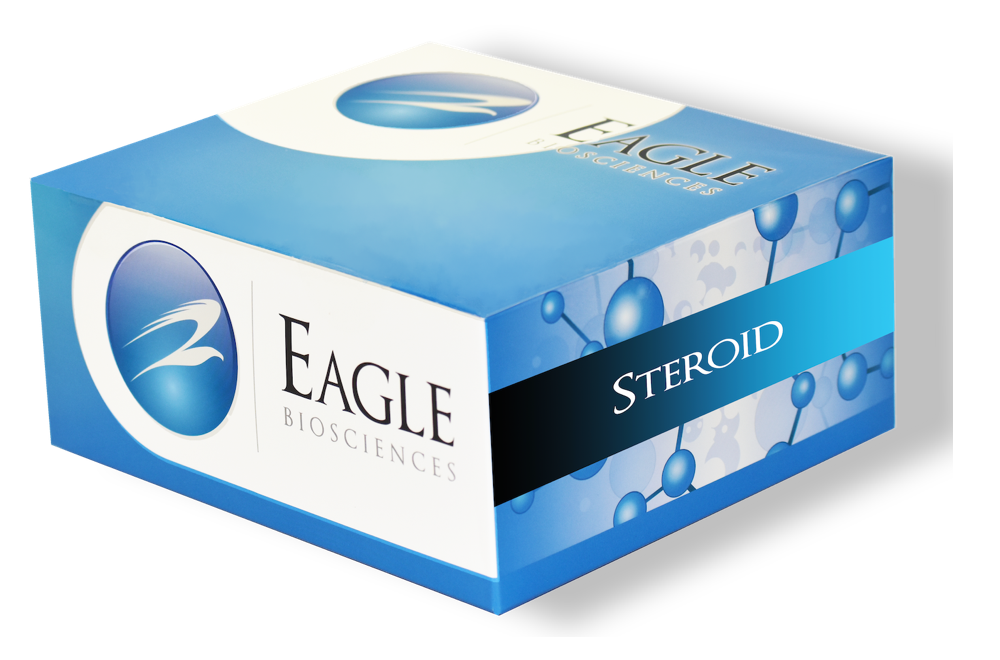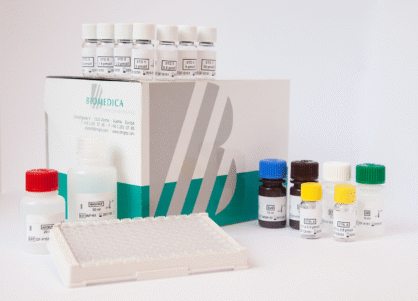AFP ELISA Kit
Alpha Fetoprotein (AFP) is a 68 kDa glycoprotein, which is normally only produced in the fetus during its development. It is a normally produced by the liver and yolk sac of the fetus. AFP levels decrease soon after birth and probably has no function in normal adults. It binds the hormone estradiol to keep it from affecting the fetal brain. Its measurement during pregnancy has been useful to detect certain abnormalities – specifically, if high levels of AFP are found in amniotic fluid, it can indicate a developmental defect in the baby. In some patients who are not pregnant a tumor can produce AFP, thus it can be used as a tumour marker. AFP is the main tumour marker (along with HCG) to diagnose testicular cancer and its values over time can have significant effect on the treatment plan. Like all tumour markers, the detection of AFP by itself is not diagnostic of anything, although if it is detected it is certainly advisable to rule out the diseases could cause levels to rise. The primary reason tumor markers are used are to measure the success of a treatment (e.g. chemotherapy), if levels of AFP are going down, it is an indication that a disease is improving. New research exhibits that an isoform of AFP which binds Lens culinaris agglutinin (AFP-L3) can be particularly useful in early identification of aggressive tumors associated with hepatocellular carcinoma (HCC)
This AFP ELISA Kit is manufactured in Italy by Diametra.
| Size | |
| Sensitivity | 0.35 ng/mL |
| Dynamic Range | 5 – 200 ng/mL |
| Incubation Time | 1 hour 30 minutes |
| Sample Type | Serum, Plasma |
| Storage | 2-8°C |
| Alternative Names | Alpha Fetoprotein |



